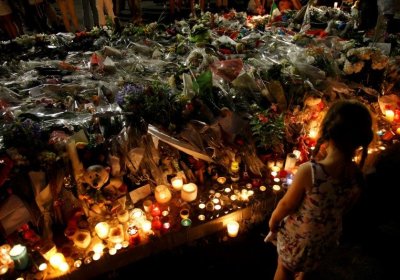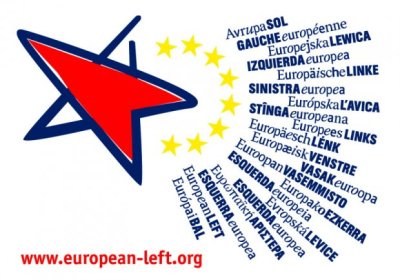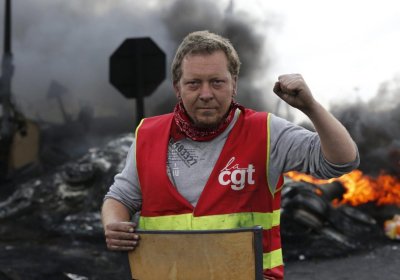Out of the 84 victims who died in the Nice attacks on France's Bastille Day, at least 30 were Muslims, figures based on the types of funerals required by relatives released by local Nice authorities said on July 19.
France
And that was how the horror came to my doorstep. To tell you the truth, like many people who live in the provinces – a somewhat disparaging term used to refer to the rest of France that exists outside of Paris and its surrounds – I thought terrorist attacks were mainly a concern for those in the capital.
On July 14, this certainty was blown apart by the sad and harsh reality: 84 people of various nationality and beliefs, among them dozens of children, died due to the actions of a lunatic on the Promenade des Anglais, the “Malecon” of the city of Nice, in the south-east of France.
“The Party of the European Left declares its solidarity with the friends and families of the more than 80 people killed in the incomprehensible attack on July14 in Nice,” the group of left-wing parties across Europe said in a statement that day. “On its national day, France witnesses another violent attack despite all its anti-terrorist security measures.
French unions protested on July 5 as the government forced a bill attacking workers’ rights through a hostile parliament. “This is a counter-productive law, socially and economically,” said Marie-Jose Kotlicki, a member of the General Confederation of Labour (CGT). “The government is making a mistake in underestimating the level of discontent over this law.”
 French unions protested on July 5 as the government forced a bill attacking workers’ rights through a hostile parliament.
“This is a counter-productive law, socially and economically,” said Marie-Jose Kotlicki, a member of the General Confederation of Labour (CGT). “The government is making a mistake in underestimating the level of discontent over this law.”
French unions protested on July 5 as the government forced a bill attacking workers’ rights through a hostile parliament.
“This is a counter-productive law, socially and economically,” said Marie-Jose Kotlicki, a member of the General Confederation of Labour (CGT). “The government is making a mistake in underestimating the level of discontent over this law.”
Huge strikes and protests are rocking France, with the threat of greater shocks to come as a hated labour law “counter-reform” is debated in the French Senate.
The Socialist Party government is trying to force through the so-called El Khomri law, which would eliminate long-held workers’ protections. But the law has stirred huge resistance, expressed in different forms, from the occupation of public squares called the “Nuit Debout” (Up All Night) to a revival of mass working class action, including general strikes.
A general strike rocked France in late May in the latest escalation of protests and workplace actions against the government's attempt to scrap long-standing protections for workers.
The economy ground to a halt as dockworkers in port cities, workers in oil refineries and nuclear power stations, airport and Paris metro workers and many more took action.
Workers took to the streets on May 26 with massive protests. Unions estimated that 300,000 people took part in demonstrations, including railway workers, postal workers, students, low-wage workers, the unemployed and retirees.
 Striking French workers demonstrating in in Marseille on May 26.
Mass strikes and protests continued to rock France on May 26 as trade unionists ramped up their campaign against hated new labour laws.
Striking French workers demonstrating in in Marseille on May 26.
Mass strikes and protests continued to rock France on May 26 as trade unionists ramped up their campaign against hated new labour laws.
 Truck drivers blocked major roads across France on May 17 while angry workers and students marched through city streets. Demonstrators were protesting against the longer working hours and reduced overtime payments ordered by President Francois Hollande's government.
Truck drivers blocked major roads across France on May 17 while angry workers and students marched through city streets. Demonstrators were protesting against the longer working hours and reduced overtime payments ordered by President Francois Hollande's government.
Could things get any worse for the proposed Transatlantic Trade and Investment Partnership (TTIP) deal between the United States and the European Union? On May 2, a hugely damaging leak of TTIP texts confirmed exactly what everyone had feared about the deal — with all its hugely pro-corporate provisions on display for everyone to see.
Fighters in the Shadow: A New History of the French Resistance
By Robert Gildea
Faber & Faber Press, London
593 pages, 2015
Upon his inauguration on May 16, 2007, former French President Nicolas Sarkozy visited the Bois de Boulogne in Paris and paid homage to 35 anti-fascist resistance fighters shot by the occupying Nazis in August 1944, just before Paris was liberated.
He also read the last letter of Guy Moquet, a 17-year-old Communist, to his parents on the eve of his execution by the occupiers in 1941 along with 26 other Communist resisters.
 Whoever cares about an issue can stand up, write a corresponding committee name on a sheet of paper, sit on the square and start discussing the subject with others — and just like that a new committee is born.
During the protest on March 31 against France's new labour law, a few protesters handed out leaflets which read Nuit debout (“rising up at night”), echoing Etienne La Boetie's Discourse on Voluntary Servitude: “Tyrants appear great only because we are on our knees”.
Whoever cares about an issue can stand up, write a corresponding committee name on a sheet of paper, sit on the square and start discussing the subject with others — and just like that a new committee is born.
During the protest on March 31 against France's new labour law, a few protesters handed out leaflets which read Nuit debout (“rising up at night”), echoing Etienne La Boetie's Discourse on Voluntary Servitude: “Tyrants appear great only because we are on our knees”.
- Previous page
- Page 10
- Next page






